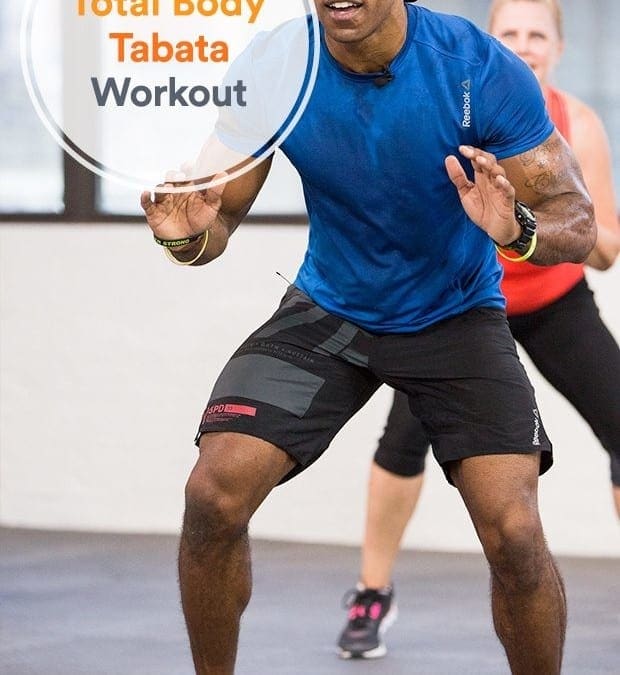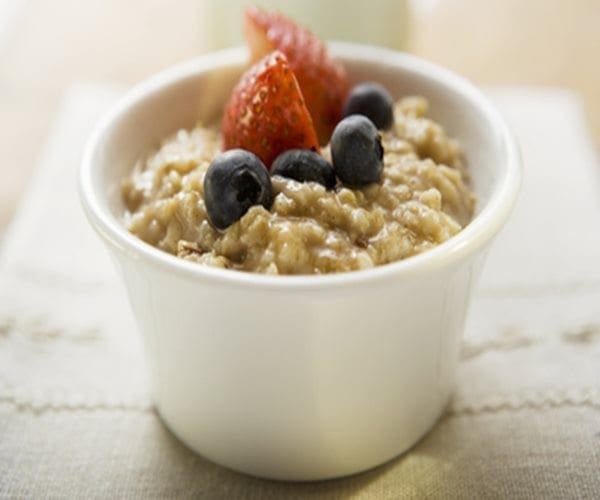
by Dr Alex Jimenez DC, APRN, FNP-BC, CFMP, IFMCP | Diets, Fitness
If you’re doing your best to eat lots of fresh fruits and vegetables, the convenience of pre-washed bagged salads may be too hard to resist. The problem is such products can contain contaminants and foreign substances that can make you sick.
That reality was dramatically spotlighted last month when two people ate fresh salad from a bagged lettuce product before discovering the remains of a bat in it. Further complicating things, the unfortunate were treated for rabies as a precaution (although lab tests later showed the bat was not rabid).
Peter Cassell, spokesperson for the Food and Drug Administration (FDA), noted the case was extremely rare and not a reason for a larger public health concern.
“Packaged salads are generally safe to eat right out of the package,” he said. “Most salads are double-washed or triple-washed and dried under managed conditions. Packaged salads are widely sold for consumer’s convenience.”
But he acknowledged such products can contain contaminants, so consumers need to take precautions to be sure they are not consuming anything dangerous or, at least, unappetizing.
“The most common extraneous materials that can be found in produce grown close to the ground include stones, rocks and dirt,” he noted. “One way consumers can identify and remove these materials is to pour the salad out into a bowl and lightly sift it with clean hands or utensils. There is no need to rewash salads that have already been washed before packaging.”
It’s not the first time that consumers have encountered problems with pre-washed salads, veggies, and fruit. Last year, four people died and 33 became ill from listeria in packaged salads.
Listeria found in food processing plants is not uncommon, but it isn’t always toxic. Dole salads, the problem in the case of listeria, closed the offending plant, issued a recall, and followed FDA requirements to sanitize its processing systems.
The salad with the dead bat was in Organic Marketside Spring Mix, produced by Fresh Express. It was only distributed at Walmart stores in the Southeastern United States.
The odds of finding a bat or dangerous pathogen in your salad are quite rare, experts say. According to Cassell, people can generally trust that pre-washed salads are handled correctly and present little to no risk to the consumer.
But health specialists say a handful of safe food-handling practices, especially for produce, are a good idea for consumers to follow. Among them:
- Wash your hands thoroughly before starting to prepare food.
- Sort through bagged or boxed greens and/or vegetables carefully.
- Rinse thoroughly and inspect the contents of bagged greens, even if they are already pre-washed.
- Do not use special “veggie soaps.” They don’t do much and remain on the food that you eat.
- Look for “best used by” dates and buy foods accordingly. If food is really fresh it will be better for you.
- Cut away damaged or bruised areas on fruits and vegetables. Throw it away if it looks rotten.
- Even if you plan to peel the produce, it is a good idea to wash it.
- Scrub things like melons or cucumbers with a clean produce brush.
- Use a paper towel to dry produce because it can help to get rid of bacteria.
- When you purchase and store your produce, bag it and store it separately from other foods like meat, seafood, and poultry.
- Refrigerate any produce that is pre-cut or peeled.
- Additional advice from the FDA:
- Wash hands and surfaces often when preparing food.
- Wash your cutting boards, dishes, counters frequently to avoid cross contamination with bacteria and other microbes.
- If you use cloth dishtowels to wipe counters clean, make sure you wash them in hot water. Consider using paper towels instead of cloth towels.
Most of us face some risk from foods — even fresh foods — that aren’t properly washed or cleaned, or that may have been contaminated by other foods like fresh meat.
About 48 million cases of foodborne illness occur each year, with one in six Americans becoming ill from some sort of food contamination. Illness usually starts within days after eating contaminated food, and can include vomiting, diarrhea, abdominal pain, fever, and headache.
Most people recover from food poisoning, according to the FDA. But pregnant women, young children, the elderly, and those with weakened immune systems face a greater risk of complications.
The bottom line: Take a look at that pre-washed salad, toss it with some utensils, and be wary, but be aware that it is probably safe, according to Cassell.
For more information about recalls, or to file a complaint about purchased food, visit the FDA Website.

by Dr Alex Jimenez DC, APRN, FNP-BC, CFMP, IFMCP | Fitness, Health, Wellness
“You can do anything for 20 seconds.” You might have heard that line in a workout class or on Daily Burn 365, when a trainer wants you to focus on an exercise, drive through the burn and push past what you think are your limits. Well, there’s a reason they want you to go short but hard. You only need to push at your max effort for 20 seconds to conquer a Tabata— a training technique founded by scientists back in the late 90s. Research still says this method improves your VO2 max and offers mega cardio benefits, not to it mention blasts calories fast.
Tabata workouts—a form of HIIT—specifically involve putting in 20 seconds of serious work, then resting for 10 seconds. You repeat this work-to-rest ratio for eight rounds. (Yes, that means you can get a solid workout in just four minutes.) Better yet, you can incorporate almost any exercise into a Tabata format (as long as you’re going at an intense effort), and you don’t need weights or a lot of space.
So, still thinking you have no time to squeeze in a workout? Put this total-body Tabata workout, courtesy of Daily Burn 365 trainer Prince Brathwaite, to the test today. You won’t even have to leave your living room.
RELATED: 9 Ways to Find Workout Motivation (Every Damn Day)
Your 8-Minute Total-Body Tabata Workout
Meet your new time-saving, body-burning, calorie-scorching workout. In true Tabata form, you’ll do the two exercises below for 20 seconds each, resting for 10 seconds in between. Repeat for eight rounds, alternating moves, so you hit a total of eight minutes. Do this whenever you can fit it in, and get ready to get fit.
RELATED: Design Your Own HIIT Workout with This Perfect Formula

RELATED: 3 Cardio Workouts Under 20 Minutes
1. Ickey Shuffler
How to: Start standing with feet hip-width apart (a). Quickly drive your knees up to your chest as you move toward your right side. Pump your arms so opposite arm comes up with opposite leg (b). After three steps, pause for a second, then drive off your toes and take three steps in the other direction (c). Continue powering through for 20 seconds.

RELATED: 3 Fat-Blasting HIIT Workouts to Try Now
2. Squat + Crawl Out + Push-Up
How to: Start standing with feet hip-width apart (a). Push your hips back and drive your butt down to perform a squat (b). Without standing back up, place your hands on the ground and walk them forward so you hit a high plank (c). Perform a push-up, with your body in a straight line from shoulders to ankles (d). Walk your hands back in toward your feet, then stand up (e). Repeat.

by Dr Alex Jimenez DC, APRN, FNP-BC, CFMP, IFMCP | Fitness, Health, Wellness
This article originally appeared on SI.com.�
This weekend, Nike will stage an intriguing human experiment with the hopes of breaking the two-hour barrier for the marathon. Using a combination of advanced running apparel and an army of pacers on a 2.4-kilometer loop at the Autodromo Nazionale Monza complex just outside of Milan, Italy, the sportswear giant looks to shave two minutes and 27 seconds off the fastest recorded time ever run by a man.
Dennis Kimetto currently owns the world record with his 2:02:57 victory at the 2014 Berlin Marathon. He is an Adidas athlete and has struggled with injuries in the past two years, so no sub-two hour marathon attempt has been tied to him, but his sponsor is working on its own sub-two shoe after having outfitted the last four world record holders.
Nike has taken the largest step forward in the sub-two arms (and footwear) race by staging the attempt under its own parameters and enlisting Eliud Kipchoge, Lelisa Desisa and Zersenay Tadese tackle one of the biggest queries of elite running.
The athletes have been in Monza since about Monday morning. A photo leaked on Twitter of one of the strategists explaining the pacing plan for 18 runners�which includes Olympic medalist Bernard Lagat and elites from the renowned Nike Bowerman Track Club�and it appears there will be runners alternating segments while remaining six at a time on the course with the three stars.
RELATED:� I Lost My Leg in the Boston Marathon Bombing�and Then Trained to Run the Race
Social media posts out of Monza have the pacers and their agents targeting the attempt on Saturday, May 6, which would be the 63rd anniversary of Roger Bannister breaking the four-minute mile. A window from May 6 to 8 has been set by Nike to select the day with the most favorable weather.
Here�s a look at the r�sum�s and credentials for the three protagonists of the attempt:
?Eliud Kipchoge
Age: 32 Country: Kenya Personal Bests: 2:03:05, 2016 London Marathon Accolades: 2016 Olympic marathon gold medalist, 2008 Olympic 5,000-meter silver medalist, 2004 Olympic 5,000-meter bronze medalist, four-time world championship medalist (includes cross country and indoors), 2014 Chicago Marathon champion, 2015 Berlin Marathon champion, 2015 and 2016 London Marathon champion
RELATED:� First Woman to Officially Run the Boston Marathon in 1967 to Do It Again Today
Kipchoge enters the attempt as arguably one of the greatest marathoners in history. His personal best of 2:03:05 is the fourth-fastest time over 26.2 in history and the third-fastest over a standard course. By running in Nike�s Breaking2 project, we didn�t get to see Kipchoge try to win is third consecutive London Marathon or a clash between him and 2:03:03 man Kenenisa Bekele of Ethiopia. Kipchoge has proven he can win so Nike recruited him to go for time while probably also throwing him a large check to pass on appearance fees and potential prize money. Kipchoge was also the first of the three selected runners to receive the Zoom Vaporfly Elite shoes that will be worn in the attempt. He�s been instrumental in the company�s tailoring of the footwear to meet his needs and performance.
According to early reports out of Kenya, Kipchoge followed most of his regular training that made him successful in his marathon career thus far. He�s won seven of his eight career marathons and in the one that he didn�t win, he finished second to Kenyan Wilson Kipsang, who won in a then-world record time of 2:03:23.
LetsRun.com paid a visit to Kipchoge and filmed one of his workouts back in March
Kipchoge ran 59:17 in Monza seven weeks ago, when Nike staged an unofficial half-marathon to show off its new shoes. He told Runner�s World that it was about a 60% effort on his part.
RELATED:� 9 Times We Were Inspired By Marathon Runners Helping Each Other�
Pacing is going to be critical in the attempt and it would be a bad sign for Kipchoge and the leaders to cross the half-marathon mark in over 60 minutes. Kimetto�s world record has an outlier of a 14:09 split at 35-kilometers, which is a large part why he negative split in the race and why attempts to go out hard and hang on haven�t worked as well. Sports scientist Ross Tucker noted on Twitter that 14:13 per 5K is the pace for a sub-two yet a 14:14 has happened only 10 times in fastest 90 marathon winners in history. It�s a tall order for Kipchoge but of the three, he�s the most probably to come the closest to under two-hours� yet that could still be a high-2:01 or low-2:02.

?Zersenay Tadese
Age: 35 Country: Eritrea Personal Bests: 58:23 for the half marathon (WR), 2:10:41 for the marathon (2012 London Marathon) Accolades: Half marathon world record holder, 2004 10,000-meter Olympic bronze medalist, 2009 10,000-meter World Championship silver medalist, five-time World Half Marathon Championship gold medalist, seven-time World Cross Country Championship medalist
The marathon has not been good for Tadese. Asking him to cut more than 10 minutes off his personal best sounds like a lot even for special shoes. He is probably the most unlikely of the group to be the one to break two-hours for the marathon but could be serving as an unofficial pacer to stick with Kipchoge and Desisa for as long as possible. In his attempt to debut at the 26.2 distance, Tadese dropped out of the 2009 London Marathon at about 35K. He finished the race in 2010 with a disappointing 2:12:03. His personal best remains 2:10:41 from the 2012 London Marathon, which put him at a distant 14th place. His last attempt at 26.2 came in 2014 and was another DNF but this time in Chicago and just after the half. Nike hasn�t affirmed it, but Tadese essentially serves as the best pacer (one with world record credentials) for Kipchoge and Desisa for maybe 25K to 30K. Tadese ran 59:41 behind Kipchoge in the Monza test run.

Lelisa Desisa
Age: 27 Country: Ethiopia Personal Best: 2:04:45, 2013 Dubai Marathon Accolades: Three-time Boston Marathon champion, 2013 World Half Marathon Championship silver medalist
Desisa has competed in 11 marathons since he started contesting the 26.2 distance in 2013. His first one at the 2013 Dubai Marathon was a 2:04:45 victory and it remains his fastest. His next-fastest was a 2:05:52 at the 2015 Dubai Marathon, but those are the only two occasions in which he�s run under 2:06. His most recent run resulted in a DNF at the 2016 New York City Marathon and so his other completed marathons have been tactical or unpaced affairs that have resulted in podium finishes or victories on the marathon majors circuit. Desisa struggled in the test run in March and fell off the sub-two pace less than halfway through and finished in 62:55, If he could somehow find that 2013 marathon form, he would hang late into the attempt with Kipchoge and maybe serve as a pacer through 35K. That�s a big �if� though.
RELATED:�How Running Helped Me Realize My Own Strength
The verdict
Given that we didn�t see any official races from these three runners ahead of the attempt, it�s really hard to assess their fitness and come up with any percentage of a chance. There�s the mental factor that comes with having run 17 laps around the course. There�s also the element of fueling and hydration that takes place within the body. Weather is another uncontrollable variable. Nike got the attention it wanted while also remaining secretive on a lot of details up until the week of the attempt. With millions watching, it�s on three men to deliver in the ultimate race against the clock.

by Dr Alex Jimenez DC, APRN, FNP-BC, CFMP, IFMCP | Fitness, Health, Wellness
Looking to take your burpees to the next level? If you’ve mastered this basic go-to fitness move, you have to try this challenging new version demoed by Nike trainers Kirsty Godso and Lauren Williams, AKA the “Pyro Girls,” on Instagram this week.
What makes their burpee upgrade so hot? “It challenges core and shoulder stability and strength differently from a regular burpee,” explains Williams. “You have to balance the explosiveness of the tuck with shoulder stability and core strength so you can do the move with control and grace.”
Up for the challenge? Here’s how to do it: Start with your feet hip-width apart. Then place both hands on ground and jump both feet back, going into a plank. Jump both legs up into the air while bending knees to bring feet toward butt (think donkey kick). Hop legs back out to a plank, and then jump feet in toward your hands. As you stand, explode up, bringing knees into chest. Land softly, and then immediately repeat the entire sequence. If you’re feeling extra cool, grab a buddy and try doing this move in tandem like Godso and Williams.
RELATED: Transform Your Body in Your Living Room With This Intense HIIT Workout
Yep, it’s just as intense as you think. (We know, we tried it!) Need a modification? Williams suggests just jumping your feet back up to your hands instead of attempting the full-blown donkey kick.
Now, who’s ready to torch some calories?

by Dr Alex Jimenez DC, APRN, FNP-BC, CFMP, IFMCP | Diets, Fitness
People with celiac disease have to avoid most grains, but oats may be an exception that’s safe, according to a recent research review, so long as the oats are uncontaminated by traces of other grains.
More studies are needed to see whether so-called pure oats available in the real world don’t provoke celiac symptoms. If proven safe, oats could provide celiac sufferers some of the benefits of eating grains that they miss out on following a gluten-free diet, researchers say.
“Oats, compared to other cereals, are a source of good quality proteins, vitamins and minerals and they improve palatability and the texture of gluten-free food,” said study coauthor Dr. Elena F. Verdu.
“For a person diagnosed with celiac disease, adding oats to a gluten-free diet could not only increase food options but also help them follow a better gluten-free diet and have a higher quality of life,” said Verdu, a gastroenterology researcher at the Farncombe Family Digestive Health Research Institute at McMaster University in Hamilton, Canada.
Celiac disease is an autoimmune disorder that affects roughly one of every 100 people in the U.S. For sufferers, consuming even trace amounts of the gluten protein in wheat, barley and rye can trigger an immune response that damages the intestines. Over time, this immune attack can lead to malnutrition, osteoporosis, chronic inflammation and a variety of other problems.
People with celiac disease are also at heightened risk of heart disease and some recent research suggests that might be in part because avoiding gluten causes them to miss out on the heart-protective benefits of eating whole grains.
Oats don’t contain the same celiac-provoking protein found in other grains, the study team writes in the journal Gastroenterology. However, Verdu told Reuters Health, issues have been raised regarding potential adverse reactions to oats by celiac patients, and this has reduced the enthusiasm of adding oats to the gluten-free diet in many cases.
“The first study suggesting that oats may be harmful for patients with celiac disease was published more than 50 years ago. Since then, the addition of oats to a gluten-free diet has remained clouded in controversy,” she said in an email.
For this reason, the review team decided to evaluate the existing evidence. They re-analyzed data from 28 previous studies that included oats in gluten-free diets for people with celiac disease. Eight of the studies were controlled clinical trials; the rest were observational.
The researchers looked at any negative effects on symptoms or blood tests for up to one year of oat consumption.
“In our study, we found no evidence that addition of oats to a gluten-free diet affects symptoms or activates celiac disease. However, it is very important to stress that there were few studies in some of the analyses, the quality of the studies was low and most of them were conducted outside of North America,” Verdu said.
Although the consensus is that pure oats are safe for most patients with celiac disease, contamination with other cereal sources that may contain gluten needs to be avoided, Verdu added.
“The purity of oats will depend on the country of origin and local regulations, and this is why we were surprised to see that most recommendations in North America are still based on studies performed in Europe,” she said.
“Patients who follow a gluten-free diet are sometimes able to consume small quantities of gluten-free oats without adverse reaction,” said Hannah Swartz, a clinical dietitian at Montefiore Medical Center in New York who wasn’t involved in the study.
“Patients who have the most success with including oats in their diet ensure the oats are certified gluten free, and wait one or more years after following a gluten free diet to ensure that gut inflammation has subsided,” she said.
“Patients with celiac disease must first ensure that the oats they are adding are certified gluten free oats. Regular oats used in products that are labeled ‘gluten free’ such as some mainstream cereals are not recommended for patients with celiac disease as there remains the possibility of cross contamination with gluten containing grains during the processing of the oats,” she said.

by Dr Alex Jimenez DC, APRN, FNP-BC, CFMP, IFMCP | Fitness, Health, Wellness
Anyone who’s tried Zumba knows what a fun, heart-pumping workout it is. Thanks to the lively music and challenging dance moves, these classes help burn calories and strengthen your body from head to toe. But before Zumba classes started appearing everywhere, there was samba reggae. This music genre (which combines Brazilian samba with Jamaican reggae) originated in Bahia, Brazil.
And of course, what’s music without some dancing? It’s no surprise this upbeat music gave rise to a style of dance with a similar name. Samba reggae is upbeat, fun, freeing, and all about connecting with your body and the rhythm of the music.
RELATED: 5 Heart Pumping Samba Moves That Burn Fat
Ready to rock this dance for yourself? In this video, dance teacher Quenia Ribeiro of the renowned dance school Ailey Extension demonstrates an easy-to-follow samba reggae workout to get your heart pumping and body flowing. Just hit play and follow-along.

by Dr Alex Jimenez DC, APRN, FNP-BC, CFMP, IFMCP | Fitness, Health, Wellness
Boxing is all the rage right now—everyone from models like Gigi Hadid and Ashley Graham to celebs like J.Lo and Demi Lovato have picked up the powerful workout as their go-to way to stay fit. And they’re definitely on to something. Boxing is great way to up your heart rate and tone your body from head to toe.
It’s no coincidence that so many people who love boxing rock killer physiques. Boxing (as well as the challenging conditioning work that goes along with training) strengthens and sculpts the entire body. That’s because boxing isn’t just about aggressively throwing punches—it’s an amazing total-body workout that tightens and tones everything from your arms to your core.
RELATED: 5 Heart-Pumping Samba Dance Moves That Burn Fat
That said, stepping into a boxing gym or class can be a bit intimidating if you’re a total newbie. So Health teamed up with two-time boxing world champion Chris Algieri to get the lowdown on must-know boxing basics. Watch this video to learn everything from how to get in fighter stance, throw a 1-2 punch (also known as a jab-cross), and master other classic moves, such as upper cuts and hooks. Whether you’re a boxing novice or just looking to perfect your form, here’s what you need to know for a total knockout workout.
















